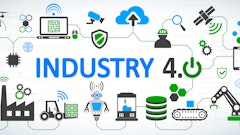
Technology has changed businesses and industries, and the supply chain industry is the biggest beneficiary of the latest advancement in technology.
From enhancing connectivity between businesses to availing information fast to streamlining of storage of files, the supply chain industry has seen huge development over the years- and the trend doesn’t seem to stop any time soon.
In this article, we are going to talk about the technological future of the supply chain industry. But before we get into that…
What is supply chain management?
Supply chain management involves the planning, controlling and execution of a product’s flow from the time raw materials are delivered to the time a product is manufactured and efficiently distributed to the end-user.
What is supply chain?
Supply chain involves all organizations, individuals, activities, resources and technology working together to create and sell a product starting from the time materials are delivered from the supplier to the manufacturer to the time the product reaches the consumer.
The supply chain activity of taking the final product from the manufacturer to the end-user is called distribution channel.
According to Australian Writings, supply chain is a mode of transport that is essential to a wide range of businesses. The function can make or break the quality of your products, the speed of delivery to your customers, etc. Because the supply chain can impact your business in various ways, it’s important to embrace technological innovations to always stay on the safe side.
In this article, we take a look at the state of supply chain now and in the future in terms of technological advancements.
The Current State of the Supply Chain Industry
The supply chain is seeing a rapid transformation. Technology and improvement precisely AI, machine learning and Neural networks are shaping the supply chain logistics and management tremendously.
All these developments are meant to speed up, lower the cost of delivery services and enhance the reliability of the services.
Undeniably, the logistics and supply chain industry isn’t the same as it was a decade ago and is still seeing a rapid transformation in all sectors.
It’s safe to say that if you are planning to pursue a career in Logistics and Supply Chain Management, then you ought to know the latest development and technologies, and that’s what you are going to learn in this article.
The Technological Future of Supply Industry
Currently, key players in the supply chain have adopted a few radical technologies and we expect to see a faster and self-orchestrated supply chain in the future.
Here are a few new technologies that are shaping the current supply chain and we expect to see a huge transformation in the future.
1. Drones Technology
Drone delivery is the hottest technological advancement in the logistics and supply chain industry that was first invented by Amazon.
Drones are being used to quicken deliveries and cut down on cost. Given that the last mile to the end user is usually the most costly and inefficient segment of the supply chain management, drones are believed to shape the way goods are delivered to customers for better.
Well, of course, many firms are still skeptical about using drones to the delivery products to the end user and according to a report by Eye For Transport, many firms still believe that the chances of a drone delivering goods to customers are minimal.
The good thing about this technology is that even though it’s still in its early stages of developing, it’s user-friendly and is becoming accessible to many firms.
Some good examples of companies that can use this technology include UPS and FedEx, particularly when it comes to keeping an eye on traffic thus making the end-stages of the supply chain hassle-free.
Just imagine how sweet it would be to order your goods on the internet and a drone delivers it to your doorstep in half an hour. That’s exactly what Logistics companies such as DHL and companies like Amazon and Google are working on.
2. 3D Printing Technology
Another technological innovation that is shaping the supply chain is the 3D printing technology. Currently, popular 3D printing companies are making this innovation readily available to all types of industries and plenty of firms have taken advantage of this innovation.
According to Jones Anderson, this technology has contributed to the transition to on-demand manufacturing and has led to the reduction of costs by decreasing inventory requirements. The customer will just need to place an order then a local 3D printing firm will work on the order then have it delivered to the doorstep of the customer by drones.
3. Artificial Intelligence
Artificial Intelligence has come to the rescue of the supply chain industry in many ways. It has enabled the analyzation of tons of data variables in real-time and management of processes within a progressively vibrant supply chain.
Well, this technology is also still in its baby steps in the way it is adopted. It is being experimented with by 33.4% of supply chain executives. However, when it comes to the improvement of real-time decision-making, it’s expected to shape the supply chain industry tremendously in the future.
4. The Internet of Things (IoT)
Internet of Things involves a network of devices connected together without much human involvement. And because connectivity is important in the supply chain industry, we can expect the internet of things to make connectivity faster and cost-efficient hence enabling real-time visibility of operations.
This technology will also enable companies, organizations, and individuals to monitor equipment and take action before a crisis strikes.
5. Driverless/Autonomous Vehicles
Undeniably, the future of the supply chain belongs to driverless cars. Google is already experimenting with this technology. Driverless cars will be able to deliver goods to the doorstep of the customer using the inbuilt navigational hardware and software and this is expected to cut down the costs of logistics.
Final Thoughts
Undeniably, technological advancements are shaping the supply chain industry. It is, therefore, important for key players in the supply chain industry to anticipate how the latest innovations will impact their supply chains and take advantage of the new technology accordingly.


















